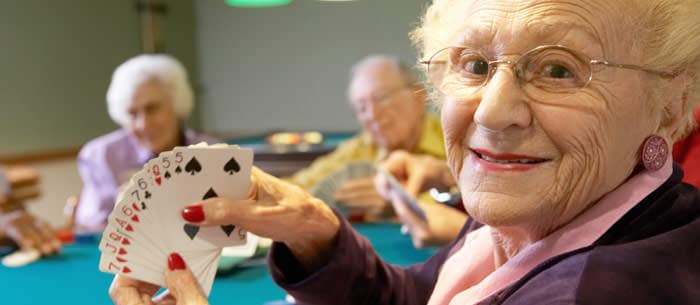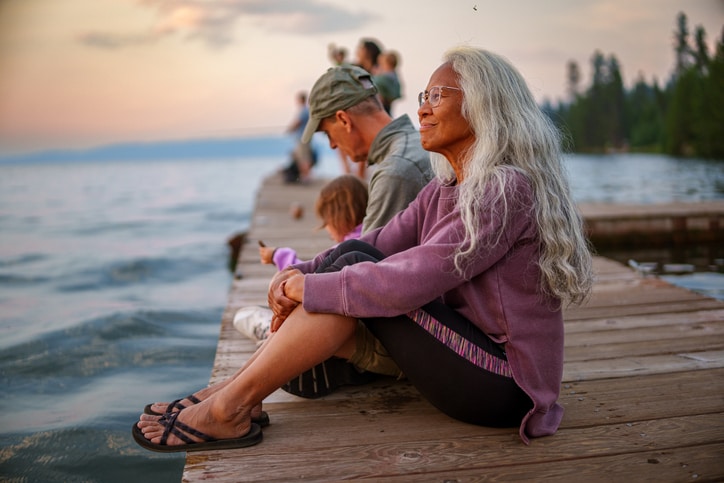Where a senior resides, the organizations a senior belongs to, and the activities she participates in can determine whether she is socially isolated or enjoys an active social life.
Consider these social options:
- Retirement communities–Seniors who live in retirement communities can participate in a wide range of organized activities that help them interact and minimize isolation.
- Apartment buildings with gyms— Seniors who live in buildings that have their own gyms can exercise regularly and get to know neighbors while doing so.
- Health clubs — Joining a health club can enable people who live in single family homes or apartments without gyms to take classes, work out, and socialize.
- Golf, tennis or racket ball clubs — Some seniors belong to sports clubs that provide them with both a social network and the opportunity to exercise.
- Learning-in-retirement groups — Classes for retirees that are sponsored by local colleges can offer both mental stimulation and a network of friends
- Groups based on common interests — Some seniors enjoy regularly meeting with others who share common interests, such as gardening, discussing books or films, hiking (the Appalachian Mountain Club has special sections of local chapters for seniors), knitting, sewing, discussing foreign policy, bowling, writing, etc.
Want social connections but don’t know where to start? Here are??more suggestions:
- The local senior center, which probably offers lectures, classes, and meals.
- The local library, many of which have book discussion groups for seniors, as well as lectures and concerts.
- Your community’s adult education classes.
- Your local college or university’s classes, lectures and concerts. Some have special classes or activities for seniors while??others encourage seniors to take regular classes at a discounted rate.
- Your local YMCA or JCC, many of which have movement classes for seniors.
- Health clubs, many of which have exercise, tai chi, dancercise or yoga classes for seniors.
- Civic, political, medical, educational or arts organizations looking for volunteers.
- Affinity groups, such as organizations or clubs for guitar players, singers, memoirists, walkers, hikers, environmentalists, amateur theatre actors, etc.
- Support groups.
- Churches, synagogues, mosques, or religious organizations that offer adult education, social action groups, and are always seeking volunteers.
- Alumni groups.
- Professional organizations, such as of lawyers, doctors, public relations specialists, etc.
- For women, The Red Hat Society.
- Widowed or divorced seniors who want companionship could consider online dating, which has connected more than one happy older couple. But don’t always believe what you read in a profile. And it is helpful to follow your instincts –?? if something about the person doesn’t feel right, don’t pursue it.
- Create your own affinity group on a topic of interest. You can go to Meetup.com and create a group on any topic, such as Lovers of Musical Theatre or Foreign Films. You will have to pay a monthly fee of $25 (the fees go down if you contract for more than one month at a time) to advertise there, but you can then ask the group members to share the cost with you. You can also create your own group and advertise at no cost on Craigslist.com. Or you can consider starting a group at your local church or through your local adult education organization. Be creative! By basing a group on your own interests, hopefully you will encounter people with similar passions.
It’s never too late to get connected socially, which then helps with physical health as well. People with social connections tend to stay healthier.
Ronnie Friedland is an editor at Care.com. She has co-edited three books on parenting and interfaith family life.






